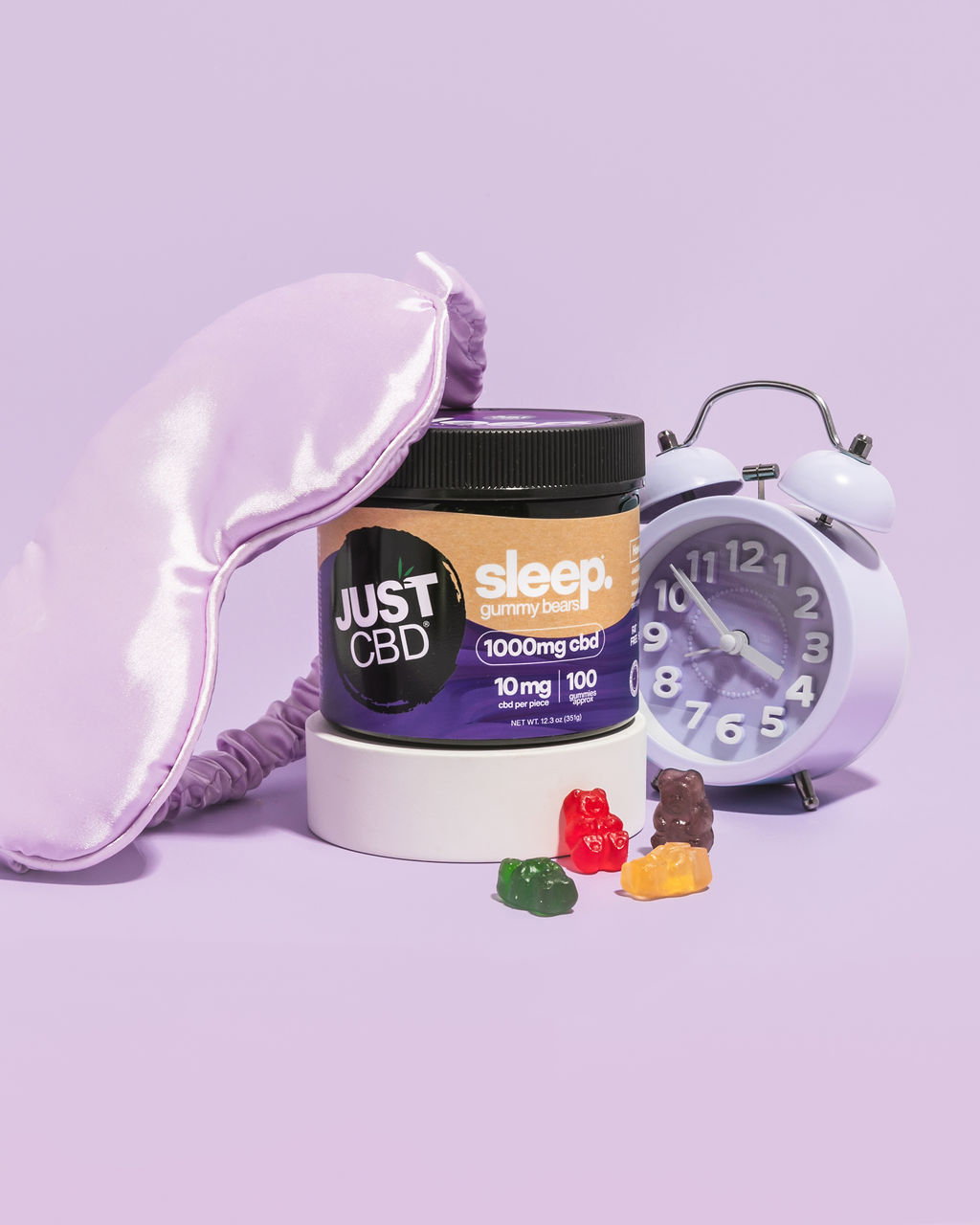Anxiety Relief
In today’s fast-paced world, mental well-being is paramount. Anxiety, a common experience affecting millions, can significantly impact daily life. Fortunately, natural remedies are gaining traction as effective solutions for managing anxiety symptoms.
Mechanism of Action
CBD gummies have emerged as a popular choice for individuals seeking natural anxiety relief. Cannabidiol (CBD), the active compound in these gummies, interacts with the body’s endocannabinoid system (ECS). The ECS is a complex network of receptors and neurotransmitters that play a crucial role in regulating various physiological processes, including mood, sleep, and stress response.
CBD exerts its anxiolytic effects by modulating the activity of serotonin receptors in the brain. Serotonin is a neurotransmitter associated with feelings of happiness, well-being, and calmness. By influencing serotonin levels, CBD can help alleviate anxiety symptoms such as excessive worry, nervousness, and panic attacks.
Additionally, CBD has anti-inflammatory properties that may contribute to its anxiolytic effects. Inflammation is increasingly recognized as a factor in the development and severity of anxiety disorders. By reducing inflammation in the brain, CBD may help dampen the neural circuits associated with anxiety.
Studies and Research
Numerous studies have investigated the potential of CBD for anxiety relief, with promising results. A 2015 review published in the journal “Neurotherapeutics” examined several clinical trials and found that CBD was generally well-tolerated and showed significant anxiolytic effects in individuals with various anxiety disorders.
Another study published in the journal “JAMA Psychiatry” in 2019 found that a single dose of oral CBD significantly reduced anxiety levels in people with social anxiety disorder. Participants who received CBD experienced a marked reduction in symptoms such as nervousness, blushing, and trembling during a simulated public speaking test.

While research on CBD for anxiety is ongoing, the existing evidence suggests its potential as a valuable natural treatment option. It’s important to note that individual responses to CBD can vary, and consulting with a healthcare professional before incorporating it into your treatment plan is always recommended.
Dosage Recommendations
Dosage recommendations for CBD gummies for anxiety relief can vary depending on factors such as individual body weight, the severity of anxiety symptoms, and the potency of the gummies.
- It’s generally recommended to start with a low dose, such as 5-10 milligrams (mg) of CBD, and gradually increase the dosage as needed until you find an effective therapeutic level.
- Some individuals may benefit from taking CBD gummies daily, while others may find it sufficient to take them as needed when experiencing anxiety symptoms.
- Pay close attention to how your body responds to different doses and adjust accordingly.
- It’s essential to follow the dosage instructions provided on the product label and consult with a healthcare professional if you have any concerns or questions.
Depression Management
Mental health is a vital aspect of overall well-being, and effective management strategies are crucial for individuals experiencing various challenges. Anxiety, in particular, affects countless people worldwide, impacting their daily lives and quality of life. Fortunately, there’s growing interest in exploring natural approaches to anxiety management, with CBD gaining considerable attention.
Potential Benefits for Different Types of Depression
Depression is a complex mental health condition characterized by persistent sadness, loss of interest, and a range of other debilitating symptoms. Effective management of depression requires a multifaceted approach that may include therapy, lifestyle changes, and medication.
CBD, a non-psychoactive compound found in cannabis, has shown promise as a potential adjunct treatment for depression in some individuals. Preliminary research suggests that CBD may modulate neurotransmitter activity in the brain, potentially alleviating depressive symptoms.
While more research is needed to fully understand the mechanisms and efficacy of CBD for depression, studies have explored its potential benefits for various types:
- Major Depressive Disorder: Some studies indicate that CBD may help reduce symptoms such as sadness, hopelessness, and fatigue in individuals with major depressive disorder.
- Treatment-Resistant Depression: CBD has shown potential as an option for people whose depression doesn’t respond to traditional treatments.
- Bipolar Disorder: Research suggests that CBD might help manage mood swings and depressive episodes in individuals with bipolar disorder, although further investigation is needed.
It’s important to note that CBD should not be used as a replacement for conventional depression treatments. Consulting with a healthcare professional before using CBD, especially if you are taking other medications or have underlying health conditions, is crucial.
Considerations for Individuals Taking Antidepressants
Managing depression while on antidepressants requires a comprehensive approach. It’s essential to work closely with a healthcare professional who can tailor treatment to your individual needs.
Maintaining open communication with your doctor is crucial. Be honest about any changes in your symptoms, side effects you may experience, or if you feel your current medication regimen is not effective.
Alongside medication, consider incorporating lifestyle modifications that can support mental well-being. These include regular exercise, a balanced diet, sufficient sleep, and stress management techniques like mindfulness or yoga.
Building a strong support system is also important. Connecting with loved ones, joining support groups, or seeking therapy can provide emotional support and coping mechanisms.
Remember that depression treatment is a journey, and finding the right combination of strategies may take time and adjustments along the way.
Long-Term Effects
Depression’s long-term effects can be far-reaching and profoundly impact various aspects of an individual’s life. Persistent depressive symptoms can lead to social isolation, strained relationships, and difficulties in work or school.
Chronic depression can also increase the risk of developing other health problems such as heart disease, stroke, diabetes, and substance abuse.
Furthermore, untreated depression can contribute to cognitive decline, memory impairment, and a diminished quality of life overall. It’s essential to seek professional help for depression to manage symptoms effectively and minimize the potential long-term consequences.
Stress Reduction
Stress is an inevitable part of modern life, but chronic stress can have detrimental effects on both mental and physical health. It can manifest as anxiety, irritability, fatigue, sleep disturbances, and even contribute to serious health conditions such as heart disease and depression.
Effects on the Endocannabinoid System
The endocannabinoid system (ECS) plays a crucial role in regulating the body’s response to stress.
This complex network of receptors and neurotransmitters is involved in maintaining homeostasis, influencing mood, sleep, appetite, and pain perception.
When under stress, the ECS helps modulate the release of cortisol, the primary stress hormone.
CBD interacts with the ECS, primarily by binding to CB1 receptors located throughout the brain and central nervous system.
This interaction can help reduce anxiety, improve mood, and promote relaxation by influencing the production and activity of neurotransmitters involved in stress response.
Impact on Stress Hormones
Stress hormones like cortisol are released in response to perceived threats. Chronic elevation of these hormones can lead to a range of negative consequences, including increased anxiety, impaired cognitive function, weakened immune system, and an elevated risk of chronic diseases.

CBD may help reduce the impact of stress hormones on the body by influencing various mechanisms. By interacting with the ECS, CBD can modulate the release of cortisol and other stress-related neurochemicals.
Additionally, CBD’s anti-inflammatory properties may contribute to stress reduction by mitigating inflammation in brain regions associated with stress response.
Lifestyle Integration
Stress management is essential for overall well-being. Integrating lifestyle changes that promote relaxation and reduce stress can significantly improve mental and physical health.
Regular exercise has been proven to effectively reduce stress levels. Physical activity releases endorphins, which have mood-boosting effects and act as natural stress relievers. Aim for at least 30 minutes of moderate-intensity exercise most days of the week.
Mindfulness practices, such as meditation or deep breathing exercises, can help calm the mind and reduce anxiety. These techniques encourage present moment awareness and promote relaxation by focusing on your breath and body sensations.
Adequate sleep is crucial for stress management. When you’re well-rested, you’re better equipped to handle challenges and cope with stress. Aim for 7-9 hours of quality sleep per night.
Prioritizing social connections and building a strong support system can provide emotional support and reduce feelings of isolation. Spending time with loved ones, engaging in hobbies, or joining social activities can contribute to overall well-being and resilience to stress.
Learning to manage your time effectively and prioritize tasks can help reduce feelings of overwhelm and stress. Break down large projects into smaller, manageable steps and set realistic goals to avoid feeling overwhelmed.
Sleep Improvement
In an increasingly demanding world, prioritizing mental well-being is essential. Anxiety, a prevalent concern affecting millions, can significantly impact daily life. Fortunately, natural solutions are gaining traction for managing anxiety symptoms.
Regulation of Sleep Cycles
Sleep plays a vital role in our physical and mental health. Regular, quality sleep allows the body to repair, restore, and rejuvenate. Disruptions in sleep patterns can lead to various issues, including fatigue, impaired cognitive function, mood swings, and an increased risk of chronic diseases.
The regulation of our sleep-wake cycles is controlled by a complex internal system known as the circadian rhythm. This biological clock is primarily driven by light exposure and influences hormone release, body temperature, and other physiological processes that regulate sleep.
Maintaining a consistent sleep schedule, even on weekends, helps synchronize your circadian rhythm and promote regular sleep patterns. Exposure to sunlight during the day, particularly in the morning, can help regulate your internal clock.
Creating a relaxing bedtime routine can signal to your body that it’s time to wind down. Activities such as taking a warm bath, reading a book, or listening to calming music can promote relaxation and prepare you for sleep.
Reducing Insomnia Symptoms
Improving sleep quality involves adopting healthy habits and creating a conducive sleep environment.
One crucial aspect is establishing a regular sleep schedule. Going to bed and waking up at consistent times each day, even on weekends, helps regulate your body’s natural sleep-wake cycle (circadian rhythm).
Creating a relaxing bedtime routine can signal your body that it’s time to wind down. This could include activities like taking a warm bath, reading a book, or listening to calming music.
Making sure your bedroom is conducive to sleep is also important. Keep the room dark, quiet, and cool. Consider using blackout curtains, earplugs, or a white noise machine to minimize distractions.
Limit caffeine and alcohol intake, especially in the hours before bedtime. Both substances can interfere with sleep patterns.
Regular exercise can promote better sleep, but avoid exercising too close to bedtime as it can make it harder to fall asleep.
Exposure to blue light from electronic devices can suppress melatonin production, a hormone that regulates sleep. Avoid screen time for at least an hour before bed.
If you continue to experience sleep difficulties, consult with a healthcare professional to rule out any underlying medical conditions or discuss potential treatment options.
Potential Interactions with Sleep Medications
When considering using CBD gummies for sleep improvement, it’s essential to be aware of potential interactions with sleep medications. While CBD is generally well-tolerated, its effects can influence how other medications work and potentially lead to side effects or reduced effectiveness.
- Sedative Medications: CBD may enhance the sedative effects of drugs like benzodiazepines or barbiturates, increasing the risk of excessive drowsiness or respiratory depression.
- Sleeping Pills (Non-benzodiazepines): CBD can interact with non-benzodiazepine sleep aids, such as zolpidem or zaleplon, potentially altering their effectiveness or increasing side effects like dizziness or daytime sleepiness.
- Other Medications: CBD can interact with a wide range of medications, including antidepressants, anticonvulsants, and blood thinners. It’s crucial to inform your doctor about all the medications you are taking before using CBD.
Always consult with a healthcare professional before combining CBD with any sleep medications to assess potential risks and determine the safest course of treatment. They can provide personalized advice based on your individual medical history, current medications, and health conditions.
Cognitive Function
Cognitive function encompasses the mental processes involved in acquiring, processing, storing, and retrieving information. It includes various abilities such as attention, memory, language comprehension, problem-solving, and decision-making. Maintaining optimal cognitive function is essential for everyday functioning, learning, and overall well-being.
Influence on Memory and Concentration
Cognitive function plays a vital role in our daily lives, enabling us to learn, remember, make decisions, and interact with the world around us. It encompasses a range of mental processes, including attention, memory, language comprehension, reasoning, and problem-solving.
Factors such as genetics, age, lifestyle choices, and underlying medical conditions can influence cognitive function.
While aging is a natural process that can lead to some cognitive decline, maintaining a healthy lifestyle can help preserve cognitive abilities and reduce the risk of cognitive impairment.
Cannabidiol (CBD), a non-psychoactive compound found in cannabis, has gained attention for its potential benefits on cognitive function. Some studies suggest that CBD may have positive effects on various aspects of cognition.
For instance, research indicates that CBD might enhance memory and learning abilities by influencing neurotransmitter activity in brain regions associated with these functions.
Furthermore, CBD has demonstrated anti-inflammatory and antioxidant properties, which could protect brain cells from damage and support cognitive health.
In relation to memory, CBD appears to show promise in improving both short-term and long-term memory. Studies have suggested that CBD may enhance the formation of new memories and improve the recall of previously learned information.
The underlying mechanisms behind these effects are likely related to CBD’s influence on neurotransmitter systems involved in memory processes, such as acetylcholine and dopamine.
Attention is crucial for focus, concentration, and the ability to process information effectively. Research suggests that CBD may have a positive impact on attentional function. Some studies indicate that CBD can reduce distractibility and improve sustained attention, allowing individuals to concentrate more effectively on tasks at hand.
The potential of CBD to enhance cognitive function is an area of ongoing research, and further investigation is needed to fully understand its mechanisms and long-term effects.
It’s important to consult with a healthcare professional before using CBD, especially if you are taking other medications or have any underlying health conditions.
Neuroprotective Properties
Cognitive function encompasses a range of mental processes crucial for learning, memory, problem-solving, and decision-making. These include attention, executive function, processing speed, and memory.
CBD has shown promise in supporting cognitive health through various mechanisms. Studies suggest that CBD may enhance communication between brain cells, protect against neuronal damage, and regulate neurotransmitter activity involved in cognitive functions.
Research indicates that CBD might improve attention and focus by modulating the activity of neurotransmitters like dopamine and serotonin, which are involved in regulating attention and alertness.
Moreover, CBD’s antioxidant and anti-inflammatory properties may help protect brain cells from damage caused by oxidative stress and inflammation, factors associated with cognitive decline.
Emerging evidence also suggests that CBD might have beneficial effects on memory function. Some studies have shown that CBD can improve both short-term and long-term memory by influencing the formation of new memories and enhancing the recall of existing information.
Effects on Anxiety-Related Cognitive Impairment
Cognitive function is essential for daily life, encompassing processes like learning, remembering, making decisions, and understanding language. Anxiety can significantly impair cognitive function, affecting attention, memory, and decision-making abilities.
CBD has shown promise in mitigating anxiety-related cognitive impairment by interacting with the endocannabinoid system (ECS), a complex network involved in regulating various physiological processes, including mood and cognition. By modulating serotonin activity, CBD can help alleviate anxiety symptoms, which in turn may improve cognitive performance.
Furthermore, CBD’s anti-inflammatory properties might contribute to its cognitive benefits by reducing inflammation in brain regions associated with cognitive function.
Order CBD Gummies with organic hemp extract
Buy premium cbd gummies with JustCBD
The CBD Consultancy
The Sugar Studio
- How Long Does The Skin Stay Red After Obagi Blue Peel Radiance Peel In Kingston Upon Thames Surrey London - August 16, 2025
- How Long Does Botox In The Nostrils Last? - August 12, 2025
- How Long Do I Have To Wait To Get More Lip Filler - August 9, 2025
